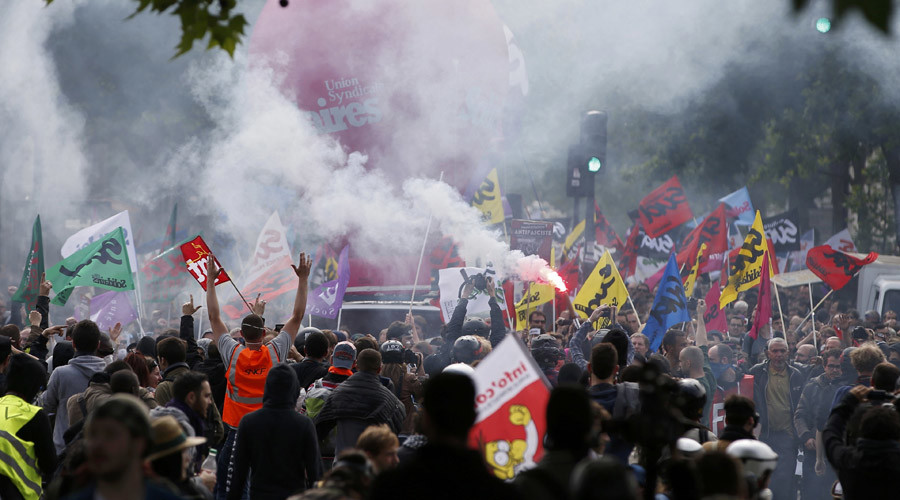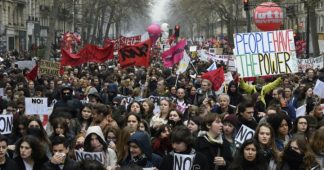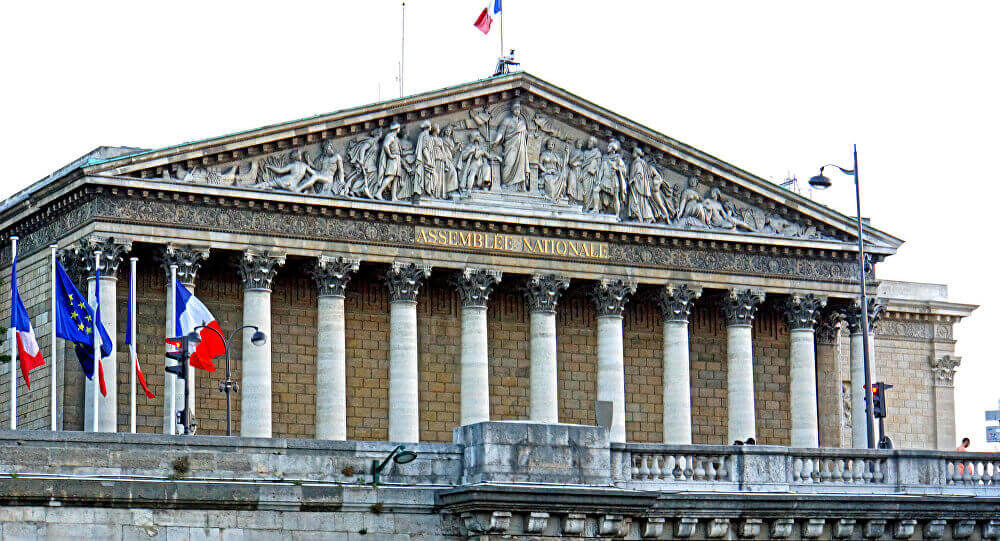Jean Jaurès, leader of the French Section of the Workers’ International (SFIO), was assassinated in Paris at 9.40pm on the evening of 31 July 1914. He had just finished dining with colleagues at the Cafe du Croissant, a few yards from the offices of l’Humanité newspaper, of which he was political director.
He was killed by two revolver shots fired through the window of the restaurant by a 31 year-old man called Raoul Villain. Villain was an archaeology student, an ultra-nationalist and a member of the Ligue des jeunes amis de l’Alsace-Lorraine.
The editor of l’Humanité wrote (1 August 1914):
“A crime always precedes the great crimes. The dreadful holocaust being prepared at this moment, in the darkness, by the militarist parties and nationalisms of every country will have had a monstrous assassination as prelude.”
As news of the assassination became known, a crowd of over 5,000 people gathered in a show of solidarity outside the office of l’Humanité. Crowds also gathered in the working-class districts of Paris, and began to move en masse towards the Place de la République. They were prevented from reaching it by police, who mobilised in large numbers to block the way. Violent police charges dispersed the demonstrators (l’Humanité , 1 August 1914)
Jean Jaurès had spent the spent the afternoon and early evening of 31 July in discussion with members of the government. At one point Abel Ferry, Under-Secretary of State for Foreign Affairs, had asked Jaurès what the socialists would do if the country continued to move torwards war. Jaurès replied that they would carry on campaigning against the war. Abel Ferry replied: “You wouldn’t dare do that; you would killed on the next street corner” [1]
Jean Jaurès’ assassin, Raoul Villain, was incarcerated for the duration of the war and brought to trial in 1919. His lawyers presented his action as a patriotic crime passionnel. He was acquitted.
Apart from the threatening prediction made to Jean Jaurès by Abel Ferry, there seems to be no evidence to implicate anyone besides Raoul Villain in the assassination. But the danger to socialists and trade unionists must have seemed real enough at the time, whether or not they believed the assassination to have been officially sponsored. Everyone knew that the government had a list – the Carnet B – of people to arrest in the event of war. And chauvinist gangs, presumably made up of people not unlike Raoul Villain, were active on the streets.
Syndicalist Georges Dumoulin said in 1918: “Fear is neither syndicalist, nor socialist, nor any ‘ist.’ It is human. In the CGT we were afraid of war, afraid of repression, just because we were human beings like everyone else.”[2]
The assassination marked the end – for the moment – of serious resistance to the war in France.
Published at http://www.resistance100.org/1914/jean-jaures-assassinated











